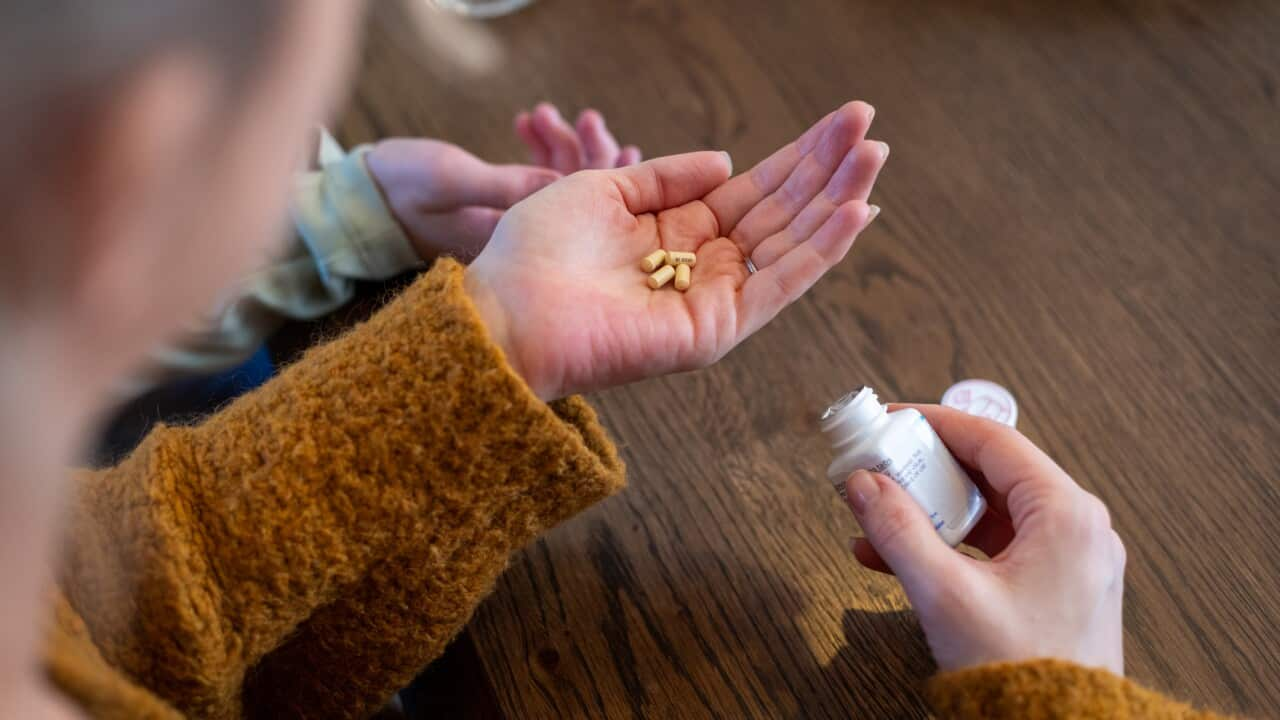Key Points
- The number of Australians being poisoned by ADHD medication was four times higher in 2023 compared to 2014.
- Researchers say the majority of poisonings were accidental.
- Clonidine resulted in a disproportionately high number of poisonings and hospital admissions, according to data.
The number of Australians being poisoned by attention-deficit hyperactivity disorder (ADHD) medications is on the rise, with experts warning of "serious" side effects such as breathing difficulties and low blood pressure.
At least 3,242 cases were recorded in 2023, and more than 8,000 people sought hospital treatment for ADHD medication poisoning in the decade leading up to that year, according to new research from the University of Sydney based on national data from the NSW Poisons Information Centre.
During 2023–24 there were over 4.6 million prescriptions for ADHD-related medications dispensed to just under 600,000 patients (an average of 8 prescriptions per patient), according to the Australian Institute of Health and Welfare. The vast majority of those prescriptions, 87 per cent, were for psychostimulants including Ritalin.
Amy Thompson, a PhD candidate at the University of Sydney's school of pharmacy, told SBS News ADHD medication poisoning can cause "respiratory issues, hypotension and dizziness".
Children were more likely to have an "adverse exposure" to ADHD medication, with 72 per cent of accidental poisonings affecting children under 15 years of age.
What is considered poisoning?
Dr Greg Kyle, a clinical pharmacist at Metro South Health in Queensland, told SBS News: "Poisoning occurs when you have an effect that goes beyond what you would normally expect from that medication."
Kyle said poisoning is different to receiving too high a dose, as not everyone will react the same way.
Determining the correct dose and type of medication to give someone goes beyond metrics like body weight.
"We need to adjust dosages according to people's different characteristics, and that's why we don't have a one-size-fits-all approach to dosing," he said.
"It's not just a case of saying 'we've got a 50 kilo 12-year-old, we will give them half the dose of a 100 kilo adult', it doesn't always work that way."
What's behind the rise in cases?
The number of Australians diagnosed with ADHD more than doubled between 2013 and 2020, which partly explains why poisonings are on the rise, Thompson said.
But poisonings related to the medication — clonidine — are "disproportionately high".
"Just one double dose of clonidine can put a child in hospital and with side effects this serious, it's vital that both families and healthcare professionals are aware of the dangers and providing families with guidance," Thompson said.
Clonidine is one of six medications used in the treatment of ADHD, along with atomoxetine, dexamphetamine, guanfacine, lisdexamfetamine and methylphenidate (known under the brand name Ritalin).
Clonidine and methylphenidate were the two most common medications implicated in poisonings, each resulting in 35 per cent of all reports, respectively.
"One problem can be that medicines are sometimes prescribed at quarter or half-doses of tablets, which can be tricky to administer accurately," Thompson said.
"Another reason can be miscommunication within the family, typically where both parents give their child a dose of medication, not realising the other has already done it.
"Children can also be curious and try out their siblings' medication, underscoring the importance of storing medicines safely out of reach."
Call for better dosing options
While the reasons clonidine poisonings are overrepresented in the data are unknown, Kyle said the small tablets can be harder to administer.
"It's very, very small doses that can be hard to administer because these tablets are not huge," he said.
"There's no clonidine mixture available on the Pharmaceutical Benefits Scheme to enable much finer control of dosing for ADHD."
While historically used to relieve blood pressure, clonidine is now also used to treat migraines, besides ADHD.
Kyle suggested the industry should explore whether a more suitable alternative form of clonidine dosing could be made available.
Experts stress ADHD medication is safe in the recommended dose.
Thompson and Kyle both recommended keeping medications out of reach of children, and to call poison control on 13 11 26 if you suspect someone is having adverse effects from medication.
Share




